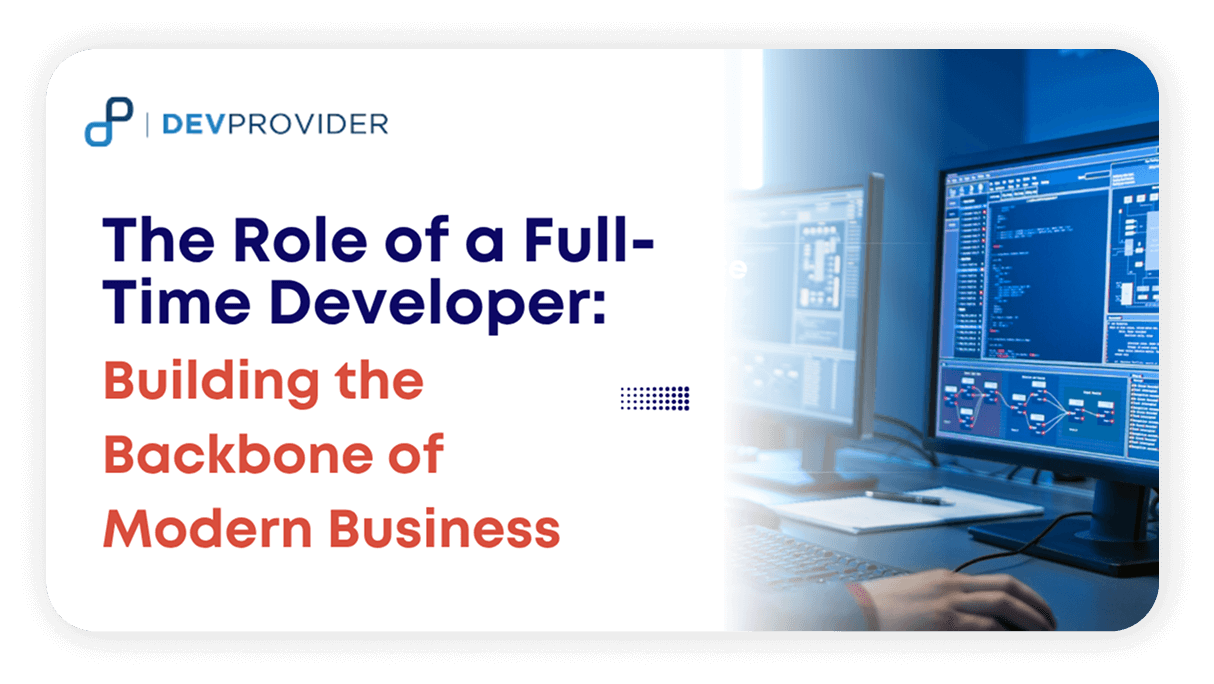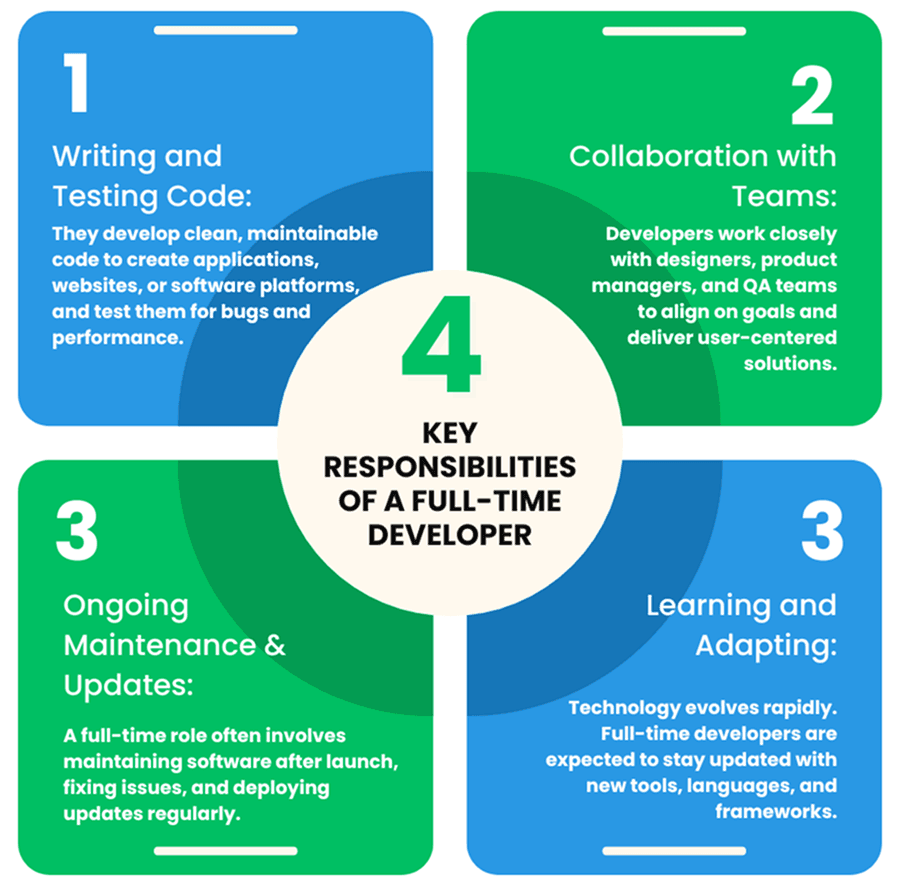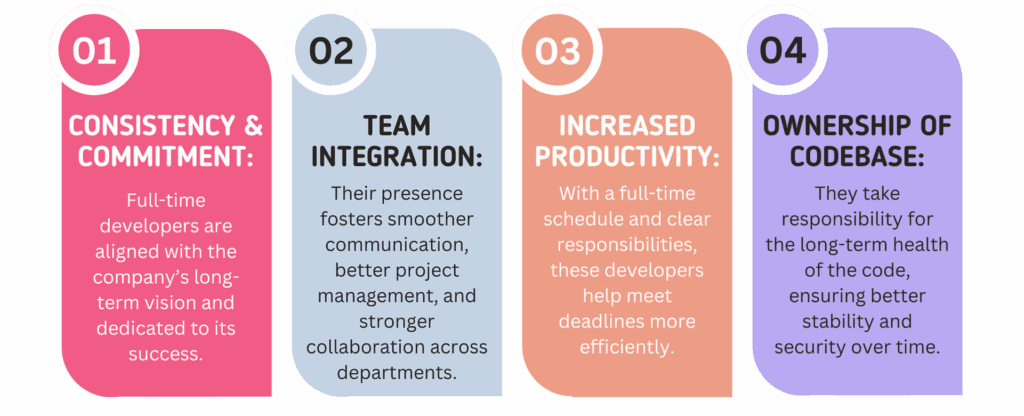
The Role of a Full-Time Developer: Building the Backbone of Modern Business

In today’s digital world, the need for constant innovation and reliable technology solutions is greater than ever. At the core of this digital transformation stands the full-time developer — a dedicated professional responsible for turning ideas into functional, scalable, and user-friendly software.
Who is a Full-Time Developer?

A full-time developer is a software professional employed by a company on a full-time basis. Unlike freelancers or part-time coders, full-time developers work within a team environment, contribute to long-term projects, and are integral to product lifecycle development — from planning and coding to deployment and maintenance.
They may specialize in:
- Front-end development (user interface)
- Back-end development (server-side logic)
- Full-stack development (both front-end and back-end)
- Or even mobile, DevOps, or AI integration
Key Responsibilities of a Full-Time Developer

Benefits of Hiring a Full-Time Developer

Skills Every Full-Time Developer Should Have
- Proficiency in one or more programming languages (e.g., JavaScript, Python, Java, C#)
- Experience with frameworks like React, Angular, Node.js, or Django
- Understanding of version control (e.g., Git) and development methodologies (Agile, Scrum)
- Problem-solving mindset and attention to detail
- Strong communication and teamwork abilities
Challenges of Being a Full-Time Developer
- Time Pressure: Balancing multiple features, bug fixes, and deadlines.
- Burnout Risk: Full-time workloads can be intense without proper work-life balance.
- Continuous Learning: The need to constantly upgrade skills can be demanding but rewarding.
Conclusion
The full-time developer is more than just a coder — they’re a crucial part of a company’s tech-driven success. Their role demands technical expertise, communication skills, and adaptability. Whether building web applications, mobile apps, or enterprise software, full-time developers are the backbone of modern innovation

